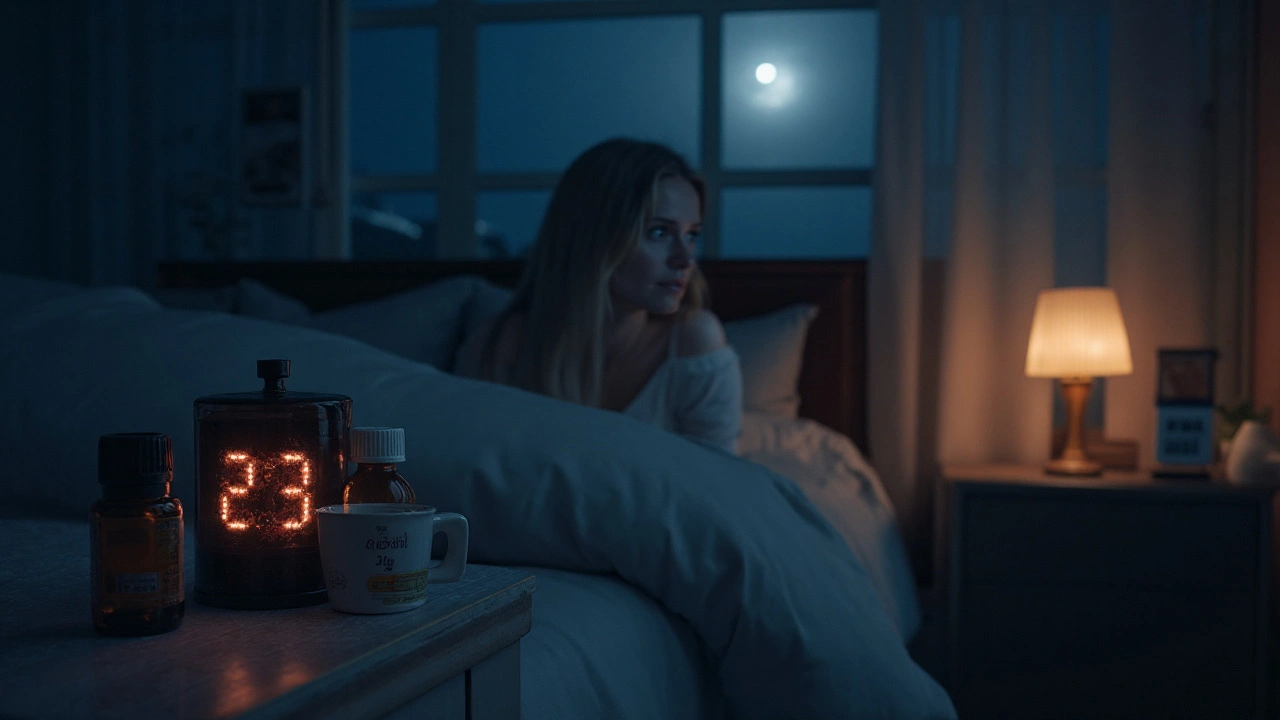Insomnia Treatment: Quick, Real‑World Ways to Sleep Better
If you’re scrolling through late‑night articles hoping for a miracle, you’re not alone. Millions toss and turn, wondering why sleep feels impossible. The good news? Most insomnia can be fixed with simple habits, a few over‑the‑counter aids, or a doctor‑prescribed option. Below you’ll find a straightforward game plan that fits any budget and lifestyle.
Why You Can’t Sleep: Common Triggers
Before picking a treatment, spot the cause. Stress from work or family, caffeine after noon, bright screens, or an uneven sleep schedule are the usual suspects. Even a cold room or a noisy street can tip the balance. Identify one or two of these that hit you most often – that’s where the real change starts.
For many, the problem isn’t a medical disorder but a habit loop. If you regularly lie awake scrolling on your phone, your brain learns that bedtime = screen time, not rest. Breaking that loop is often the first and most effective step.
Top Insomnia Treatments – From Simple to Strong
1. Sleep‑Friendly Routine
Set a “wind‑down” window 30‑60 minutes before bed. Dim the lights, turn off phones, and do something calming – reading a paperback, gentle stretching, or listening to soft music. Consistency trains your body clock and makes falling asleep easier.
2. Caffeine & Alcohol Check
Skip coffee after 2 p.m. and limit alcohol to one drink, and only if you can finish it a few hours before bedtime. Both disrupt deep sleep stages and can keep you tossing.
3. Over‑the‑Counter Help
Melatonin (0.5‑3 mg) taken 30 minutes before bed can reset your internal clock, especially for shift workers or jet lag. If you need a short‑term boost, diphenhydramine (found in many sleep aids) works, but save it for occasional use – tolerance builds fast.
4. Prescription Options
When lifestyle tweaks aren’t enough, doctors may prescribe short‑acting hypnotics like zolpidem or eszopiclone. These are effective for most adults but require a doctor’s guidance because of potential side effects and dependence risk.
5. Natural Remedies
Herbal teas with chamomile or valerian root are mild relaxants that many find helpful. Magnesium supplements (200‑400 mg) can also improve sleep quality, especially if you’re low on the mineral.
Pick the level that feels right for you. Start with routine changes, add a low‑dose melatonin if needed, and only move to stronger meds under professional advice.
Remember to keep a sleep diary for a week. Log bedtime, wake time, caffeine, stress levels, and any meds you tried. Patterns pop up fast, and the diary gives your doctor concrete info if you need a prescription.
Sleep isn’t a luxury – it’s a daily requirement. With a clear routine, a few smart choices, and the right medication when necessary, you can break the insomnia cycle and wake up refreshed. Try one change at a time, track the results, and give your body the chance to reset. You deserve a good night’s rest, and it’s closer than you think.
- Archer Pennington
- 14
Why Professional Help Is Crucial for Effective Insomnia Treatment
Discover why seeking a sleep specialist, CBT‑I, or medication is essential for lasting insomnia relief. Learn the risks of DIY solutions and practical steps to get professional care.
Read more- Archer Pennington
- 6
The Future of Doxepin (2025): New Research, Emerging Uses, and Safer Dosing
Where doxepin is heading in 2025: new research on insomnia, itch, mucositis pain, plus dosing, safety, and smart comparisons so you know when it fits-and when it doesn’t.
Read more

